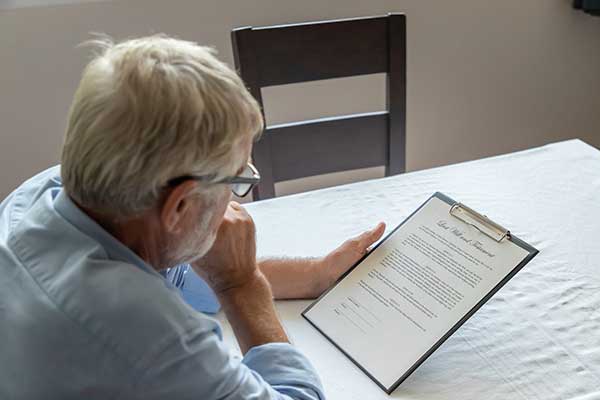Answers To Common Questions About Florida Probate
Q: What are the basic components of probate in Florida?
Probate is the process of distributing property that someone owned at death to designated beneficiaries after:
- Identifying assets
- Paying necessary taxes and debts
If there is a will, the property should be distributed according to the terms of the will. Property held by a trust or trusts should be managed appropriately by the trustee(s) named in these testamentary documents. Property that was co-owned will normally transfer automatically to the other owner(s). Proceeds from life insurance and other sources that name beneficiaries will not need to go through an estate.
Q: What if my family member died without a will?
This is known as an intestate circumstance. Depending on who survives, assets will be distributed, according to state laws, to some combination of the person’s immediate family members (spouse, children, parents and/or siblings), depending on who survives.
Q: Do I need a lawyer to settle an estate?
Nearly everyone who is not a lawyer needs an attorney’s help to accomplish all the requirements of settling an estate. Trying to do it yourself is highly risky as you could become embroiled in trouble with the state and/or targeted in litigation. Most people need legal guidance to complete all steps, including retitling real estate, completing the final income tax filing and more.
Q: I’m afraid if I get a lawyer involved, assets will be diminished through legal fees. Is this a legitimate concern?
Florida laws prohibit probate lawyers from charging more than what is reasonable. Typical fees are a small percentage of the decedent’s assets. It is a sound investment that most people find necessary and worthwhile.
Q: For smaller estates, is there an easier way than the usual probate processes?
Small estates (worth less than $75,000) may qualify for a streamlined process known as “summary judgment.” Larger estates go through the more involved typical process known as “formal administration.”
Q: What if my family member’s assets were all in trust? Do I still need to do anything with the probate court?
Maybe not, but you should have an attorney review the estate thoroughly to ensure that all assets were included in the trusts. A pour-over will may account for assets not included in trusts.
Q: How do I know which probate lawyer I can trust?
Many people correctly realize that probate can be complex and that they should work under the care of a lawyer:
- With extensive experience in this area of the law
- Who is empathetic, a clear communicator, skilled and efficient
- Who is eager to work with clients directly, rather than turning them over to paralegals or junior associates
- Who is involved and respected in the community
Before making your decision, meet with a lawyer you are considering in person or through distance telecommunication tools like Skype, Zoom or web conferences.
Q: How can I get in touch with Schnauss Naugle Law?
A: Call (904) 643-6342 or inquire online to schedule a consultation. Bring your own questions to the attention of attorney Katherine Schnauss Naugle.

